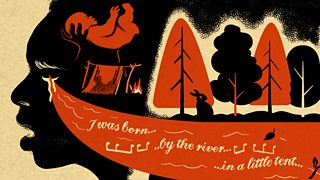Powerful anthems: eight songs that helped change the world
On 6 February 1918, a ground-breaking Act of Parliament allowed some women in the United Kingdom to vote for the first time. 100 years later to the day, BBC Radio 3 will mark this important centenary with a special piece of music written by descendants of Emmeline Pankhurst.
The Pankhurst Anthem is inspired by a long tradition of powerful anthems, from hymns to pop and protest songs. Here’s a selection of our favourites...
1. La Marseillaise
“To arms, citizens – form your battalions. Let's march, let's march!”
Ironically, considering it’s now the anthem of the Republic of France, La Marseillaise was written by a Royalist: a French army officer, Claude Joseph Rouget de Lisle, who narrowly escaped the guillotine in 1793.

His rousing, triumphant-sounding anthem was originally written in response to the threat of Austrian invasion. But it really took off when it was sung in the streets by revolutionary fédérés (volunteers) from the Provençal city of Marseille – hence its popular name.
La Marseillaise subsequently became emblematic of the French Revolution and its values of liberté, égalité et fraternité. And come World War II, it became an important song for the French resistance movement.
Such is its power as an anthem that the word “Marseillaise” has become a bit of a byword for “anthemic” – as we’ll see in several other entries on our list.
2. Nkosi Sikelel' iAfrika
“God bless Africa – may her glory be lifted high!”
Like many famous anthems, Nkosi Sikelel' iAfrika (“God bless Africa”) started life as a hymn, with Xhosa lyrics mapped to a Welsh hymn tune by a South African schoolteacher in the late 19th century.
By 1925, though, it had been adopted as the anthem of South Africa’s African National Congress (ANC) and fast became a symbol of the anti-apartheid movement. At a time of great hardship and pain, it was a song that offered hope and encouragement to millions of South Africans.
Nkosi Sikelel' iAfrika was banned by the South African government for many years. But after apartheid ended, it was declared the Rainbow Nation’s official national anthem alongside the existing Afrikaans anthem. The two are now combined, uniting old and new traditions.
3. The March of the Women
“Shout, shout, up with your song! Cry with the wind, for the dawn is breaking.”
Ethel Smyth, who lived from 1859-1944, was a prominent suffragette as well as one of England’s leading composers. Her March of the Women – dubbed “the Marseillaise of the suffrage movement” – is one of the only pieces of music to have been composed specifically for the suffrage cause.
The March of the Women is a strong, upbeat marching song with a tune designed to be sung in matronly unison. It’s also fairly high-pitched – the perfect tune for challenging the establishment.
The March was first performed at a rally in 1911. But its most famous performance took place the following year in Holloway Prison, where Smyth was in custody following her arrest for involvement in militant suffragette protests.
When a visitor arrived at the prison, he was greeted with the sight of the composer conducting a group of singing, marching suffragettes from an upstairs window, using a toothbrush to beat time.
The Pankhurst Anthem
The Pankhurst Anthem is a brand new choral work commissioned by BBC Radio 3 to mark the centenary of women’s suffrage in the United Kingdom.
A sisterhood of sacrifices made along the way – but now we stand, today
With music and text by written by descendants of the famous suffragette Emmeline Pankhurst, it recalls the struggles of the women’s suffrage movement and reflects on its repercussions for people today.
The Pankhurst Anthem can be heard for the first time on 6 February, and BBC Radio 3 is inviting singers and choirs from around the country to make it a part of their repertoire in 2018.
A video performance and free sheet music will be available to download from 6am on Tuesday 6 February.
For more information, check the BBC Radio 3 website.

Listen to Ethel Smyth's suffragette battle hymn: March of the Women
Otherwise known as “the Marseillaise of the suffrage movement”...
4. Strange Fruit
Strange Fruit is beautiful, yet chilling.
Southern trees bear strange fruit – blood on the leaves and blood at the root
The "strange fruit" of the title isn’t fruit at all, but the bodies of men and women strung up from trees by lawless, racist mobs. It’s a protest song that reflects the anguish of black communities who suffered a series of horrifying mob lynchings in America’s Deep South.
Written by a New York schoolteacher in 1937, Strange Fruit became truly famous in 1939 when Billy Holiday performed it at Café Society, the city’s first racially integrated nightclub. Her recording of the song that same year sold over a million copies – and it, too, was compared with the Marseillaise.
“This is about a phonograph record which has obsessed me for two days”, wrote a New York Post journalist. “If the anger of the exploited ever mounts high enough in the South, it now has its Marseillaise”.
5. A Change Is Gonna Come
"It's been a long time coming, but I know a change is gonna come."
Sam Cooke’s 1964 song was inspired by an incident that happened the previous year, when Cooke and members of his family were turned away from a whites-only motel. Cooke was later arrested by the police, after he and his brother angrily protested.

A Change Is Gonna Come was embraced by and later became synonymous with the American civil rights movement of the 1960s. All five verses ring loud with the injustice of racism – yet the song has at its core a simple, inspiring message of hope.
6. I Am What I Am
“Life's not worth a damn ‘til you can shout out: I am what I am!”
This anthem of the gay rights movement was famously covered in the 1980s by icons including Shirley Bassey and Gloria Gaynor, but started life in a Broadway musical, La Cage aux Folles, set in a nightclub famed for its drag acts.
Its messages of pride and personal integrity work equally well against the backdrops of a flurrying Broadway band or a bouncy disco soundtrack.
7. God Save the Queen (no, not that one)
"God save the Queen – the fascist regime!"
The release of The Sex Pistol’s most famous record in May 1977 provocatively (if not 100% deliberately) clashed with Queen Elizabeth II’s Silver Jubilee celebrations. For many members of the public, it was a coincidence too far – some even accused the band of treason.
Whether you loved or hated it, God Save The Queen was (almost literally) a watershed moment. It utterly subverted the sanctity of Britain’s national anthem and brought criticism of the establishment into mainstream popular culture.
Despite – or maybe because of – being banned by the BBC for being “in bad taste”, tens of thousands of people flocked to buy the record. In the week of the Jubilee itself, God Save The Queen reached number two in the charts, controversially pipped to the post by Rod Stewart. A true punk anthem, it's an eloquent expression of what it’s like to feel young, alienated and angry.
8. Free Nelson Mandela
"Are you so blind that you cannot see? Are you so deaf that you cannot hear? Are you so dumb that you cannot speak? I say: Free Nelson Mandela!"
Unlike many other protest songs, The Special AKA's Free Nelson Mandela is an up-tempo, celebratory track that invites the listener to dance as well as to march.
Released in 1984, it was hugely popular in South Africa, despite being officially banned by the government there. But the track also brought conversations around the injustices of apartheid to a wide international audience – once again, through the medium of popular culture.
In February 2018, BBC Radio 3 will invite singers and choirs around the country to sing The Pankhurst Anthem, an inspiring new choral work written by descendants of suffragette Emmeline Pankhurst.
Full details, a video and free sheet music will be published on the Radio 3 website on 6 February 2018.
-
![]()
The Pankhurst Anthem
From 6 February 2018 - watch a video and download free sheet music for this exciting new choral work.
-
![]()
Celebrating Women Composers
The lives and music of some of the greatest women composers, explored on BBC Radio 3.
-
![]()
The women erased from musical history
Radio 3's new, large-scale recording project will allow listeners to hear the music of five “forgotten” women composers for the first time in decades.
-
![]()
BBC Radio 3 Breakfast
Radio 3's Breakfast programme always includes music by women composers. Discovery couldn't be easier!




